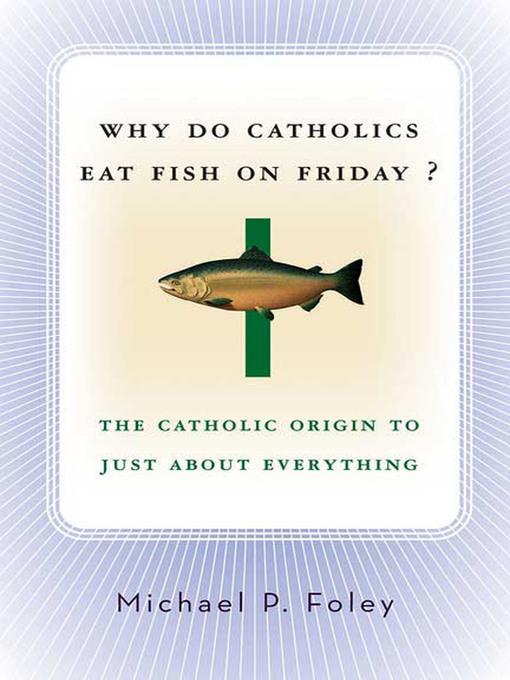
Why Do Catholics Eat Fish on Friday?
The Catholic Origin to Just About Everything
کتاب های مرتبط
- اطلاعات
- نقد و بررسی
- دیدگاه کاربران
نقد و بررسی

November 28, 2005
Part apologetics and part history, this book digs into the Catholic roots of contemporary culture. Foley, who holds a doctorate in Catholic theology and is a professor at Baylor University, researched extensively for this project. It is not a collection of trivia, but rather a compendium of etymologies and concise historical facts about the Catholic foundations of architecture, music, literature, science and recreation. The breadth of material is impressive and includes topics as varied as the creation of the pretzel, the origin of modern opera, the foundation of modern genetics and the development of sign language. As Foley argues in his introduction, this diversity should not be a surprise, for "there is something intrinsic to Catholicism that lends to it a vibrant dynamism." Foley's work highlights that, at its best, Catholicism affirms the beauty of the world and encourages searching for the holy in daily life. Foley's language can be preachy and catechetical; these passages are the weakest in the text. But when he focuses on the history, Foley's collection of theological facts makes for a fascinating and informative read.

December 8, 2005
Part apologetics and part history, this book digs into the Catholic roots of contemporary culture. Foley, who holds a doctorate in Catholic theology and is a professor at Baylor University, researched extensively for this project. It is not a collection of trivia, but rather a compendium of etymologies and concise historical facts about the Catholic foundations of architecture, music, literature, science and recreation. The breadth of material is impressive and includes topics as varied as the creation of the pretzel, the origin of modern opera, the foundation of modern genetics and the development of sign language. As Foley argues in his introduction, this diversity should not be a surprise, for "there is something intrinsic to Catholicism that lends to it a vibrant dynamism." Foley's work highlights that, at its best, Catholicism affirms the beauty of the world and encourages searching for the holy in daily life. Foley's language can be preachy and catechetical; these passages are the weakest in the text. But when he focuses on the history, Foley's collection of theological facts makes for a fascinating and informative read.
Copyright 2005 Library Journal, LLC Used with permission.

























دیدگاه کاربران